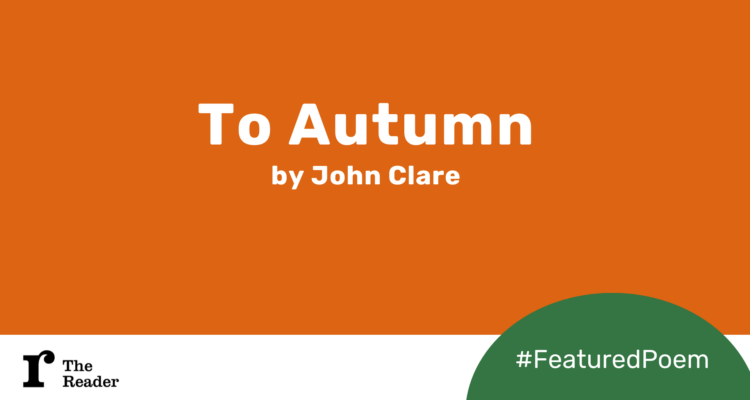Featured Poem: Lines Written a Few Miles above Tintern Abbey by William Wordsworth
This week in our special series of poems to help us through the testing times ahead, Charlotte Weber, Wirral Hub Leader and Calderstones Studio Manager, shares her thoughts on the second half of Lines Written a Few Miles above Tintern Abbey by William Wordsworth. Read part one here.
It seems to me that we are needing nature, the natural world, more than ever at the moment. From conversations with family and friends, choices of readings and poems by colleagues, and from my own life, what I am seeing is a curiosity and a comfort in what the green spaces around us can offer.
Green spaces look different for all of us at the moment. For my mother, in lock-down due to underlying health conditions, the natural world has become the garden at the back of the house; I get pictures from her every day of the new flowers and growth she spots as she makes her daily rounds.
In the room where I work in my flat I have four plants, two of which I have ‘adopted’ from Calderstones Mansion House whilst it’s closed. Every time I walk into the room I feel a rush of gratitude and a kind of grounding in seeing those green leaves.
I’m also fortunate to live just across the road from Sefton Park in Liverpool. Each morning my partner and I go for a long walk for our one allotted form of outdoors exercise. The daily changes and happenings around the trees, lake and fields, have become a source of gossip, excitement and inspiration for us: moorhens are starting to nest; the geese are having arguments; crows apparently hang and swing by their beaks on flimsy branches – and ducks perch at the top of pine trees!
The poet who has taught me the most about nature and what it can mean for us humans, is William Wordsworth. I first read his poem ‘Tintern Abbey’ during my A-Levels, and though at that stage of my life I wasn’t much of a nature-lover, I felt something move me very deeply as I made my way through the strange and beautiful verses. As it’s a long poem I’m only quoting an extract here – it comes from the beginning of the second verse, where the poet reflects on his rural childhood home:
From ‘Lines Written a Few Miles above Tintern Abbey, on Revisiting the Banks of the Wye during a Tour, July 13, 1798.’ By William Wordsworth.
Though absent long,
These forms of beauty have not been to me,
As is a landscape to a blind man’s eye:
But oft, in lonely rooms, and mid the din
Of towns and cities, I have owed to them,
In hours of weariness, sensations sweet,
Felt in the blood, and felt along the heart,
And passing even into my purer mind
With tranquil restoration: - feelings too
Of unremembered pleasure; such, perhaps,
As may have had no trivial influence
On that best portion of a good man’s life;
His little, nameless, unremembered acts
Of kindness and of love.
I love the ‘sensations sweet / Felt in the blood, and felt along the heart’. What could be better in ‘hours of weariness’ than a sweet thought or memory – and I’m reminded of the tree-dwelling ducks in Sefton Park, who never fail to bring a smile to my face when I’ve been cooped-up inside for the afternoon.
But the strangest thing for me in these lines, and in so many of Wordsworth’s poems, is the conviction and confidence that nature hasn’t just been something nice to look at, or a place to go to unwind: it has been a teacher, an active force that has shaped a human mind and character:
- feelings too
Of unremembered pleasure; such, perhaps,
As may have had no trivial influence
On that best portion of a good man’s life;
His little, nameless, unremembered acts
Of kindness and of love.
I don’t know if nature is a teacher to all of us in the ways of kindness and love – many may feel they get this more from other people, perhaps from books… But what feels important here is that repetition of ‘unremembered’ – unremembered pleasure and unremembered acts; as if there was something about seemingly small, fleeting moments of pleasure that gives them power to influence our future actions.
There will be countless ‘little, nameless’ acts of kindness and love being performed on a daily basis at the moment, I feel sure. Does the fact that they are ‘unremembered’ diminish them? I don’t think so. There is that ‘feeling’ we get when something good happens to us, and this is the thing that we can pass on – whether it comes from the natural world, another person, or any other more unlikely place.
Sending all good wishes from my home to yours,
Charlotte
Share
Related Articles

Featured Poem: Lines by Thomas Hood
Our Featured Poem for February is 'Lines' by Thomas Hood, selected and read by Frances. Lines by Thomas Hood Let…

Featured Poem: Love by George Herbert
The Featured Poem for January is Love by George Herbert and is from the anthology Stressed, Unstressed and is read by…

Featured Poem: To Autumn
For November's Featured Poem, Julie is reading 'To Autumn' by John Clare To Autumn by John Clare Come, pensive…


